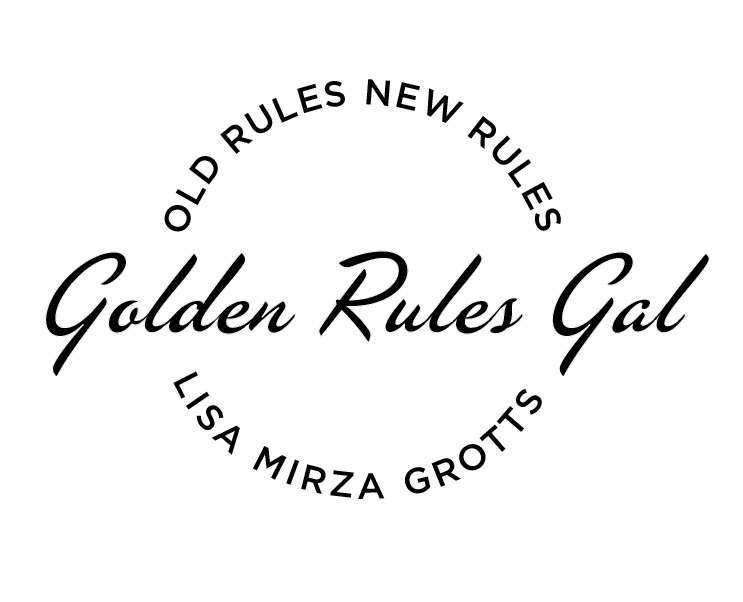• Gifts: Gifts (hostess or otherwise) don’t need to be expensive. It really is the thought that counts! Do your homework in regard to the giftee so you can give a gift he or she really wants. Use simple, elegant wrapping paper and ribbon. And never walk into a party empty-handed.
• Party Invitations: When hosting a party, always make clear what kind it is: cocktails, dinner, buffet, brunch, lunch, and so on. All of the five W’s should be answered in your invitation: who, what, where, when and why. The more information your guests have, the better.
• Holiday Gratuities: How much to give depends on the quality and frequency of service, your relationship, and of course, your budget. Your holiday tip list can include your regular babysitter (one evening’s pay, plus a small — ideally, handmade — gift from your child); your barber or hair stylist (the cost of one haircut); your personal trainer (the cost of one training session); your housekeeper (one week’s to one month’s salary, based on length of service); your pet groomer (one session’s fee, or a gift); your doorman (at your discretion, but the more generous the doorman’s services, the higher the tip should be).
• Holiday Cards: Always personalize your cards with a short note or, at the very least, a handwritten signature. When you address the envelope to spouses or partners (such as “Mr. & Mrs. John P. Grotts,” or the less formal “Lisa and John Grotts”), never add “and family.” Make the message personal and include it for the family inside the card.
• Thank-You Notes: Send thank-you notes to acknowledge gifts received and gratitude for any kindness on the part of others. To acknowledge a gift, say thank you by telephone or e-mail, then follow up with a note within forty-eight hours so the message is not lost. Writing a thank-you note takes only a few minutes, but its value is priceless.
• Holiday Food: Some foods require a certain amount of knife and fork manipulation for a single bite. You want to be able to tackle anything, no matter how awkward. Keep in mind that size does matter: less is always more. Here are some foods that deserve special attention at the table: Bread, whether sliced or in rolls, should be broken off one piece at a time, then buttered over your bread plate. Never butter more than one bite at a time, and never butter an entire roll or piece of bread. Salad should be eaten with a salad fork; wedges and large sections may be cut with a knife. Soup is spooned away from you. If it’s too hot, skim from the top, not the bottom. Never blow on soup, as it will only spatter.
• Dining Dilemmas: If you can’t reach an item, ask the person nearest you to pass it to you. If you get a seed or bone stuck in your mouth, remove it with your fingers and place it at the edge of your dinner or bread plate. All foods, including platters, bread, and salt and pepper, are passed to the right. (Note: Salt and pepper should always be passed together. And never salt your food before tasting it). If you have a food allergy or are a vegetarian, alert your host before being seated if he or she has not already been told. If you simply dislike certain foods, try a little bit of everything anyway to be polite. And remember: Elbows are allowed on the table only when there is no food in front of you.
• Holiday Dress: Wear clothes that are appropriate for the occasion. The holidays usually call for more festive and formal dress. If an invitation does not specify dress, you have every right to ask when you respond to the invitation. In any event, it’s better to be overdressed than underdressed. It’s an insult to show up casually dressed when a host has made a great effort to put on an elegant party for you and other guests.
• Toasting: The holidays naturally call for celebratory toasts. If you want to make a toast, don’t clink your silverware on your glass to get everyone’s attention — this will only break your crystal. Simply lift your glass, speak clearly, and say, “May I please have everyone’s attention?” If the group is large, it’s best to stand. A toast should not be too personal or too long. Remember the 3 B’s of toasting: begin, be brief, and be seated.
• Holiday Conversation: Party talk should not be serious or drawn out. A successful encounter in a large group requires only a few well-chosen friendly words and good eye contact. Ask the other person about him- or herself. People are flattered to be asked about themselves. Safe party topics include current events, new restaurants, movies, mutual friends, or holiday travel plans. Danger-zone topics? Anything personal, such as salaries, the cost of things, gossip or off-color jokes, religion, and politics. To engage in small talk, you don’t need to have an in-depth conversation but rather an exchange of social niceties.
[author] [author_image timthumb=’on’]http://37.60.249.202/~expertet/wp-content/uploads/about-lisa.jpg[/author_image] [author_info]Lisa Mirza Grotts is a recognized etiquette expert, an on-air contributor, and the author of A Traveler’s Passport to Etiquette. She is a former director of protocol for the city and county of San Francisco and the founder and CEO of The AML Group (Lisagrotts.com), certified etiquette and protocol consultants. Her clients range from Stanford Hospital to Cornell University and Levi Strauss. She has been quoted by Condé Nast Traveler, InStyle magazine, the Los Angeles Times, and the New York Times. To learn more about Lisa, follow her on Twitter.com/LisaGrotts and Facebook.com/LisaGrotts
Follow Lisa Mirza Grotts on Twitter.[/author_info] [/author]
